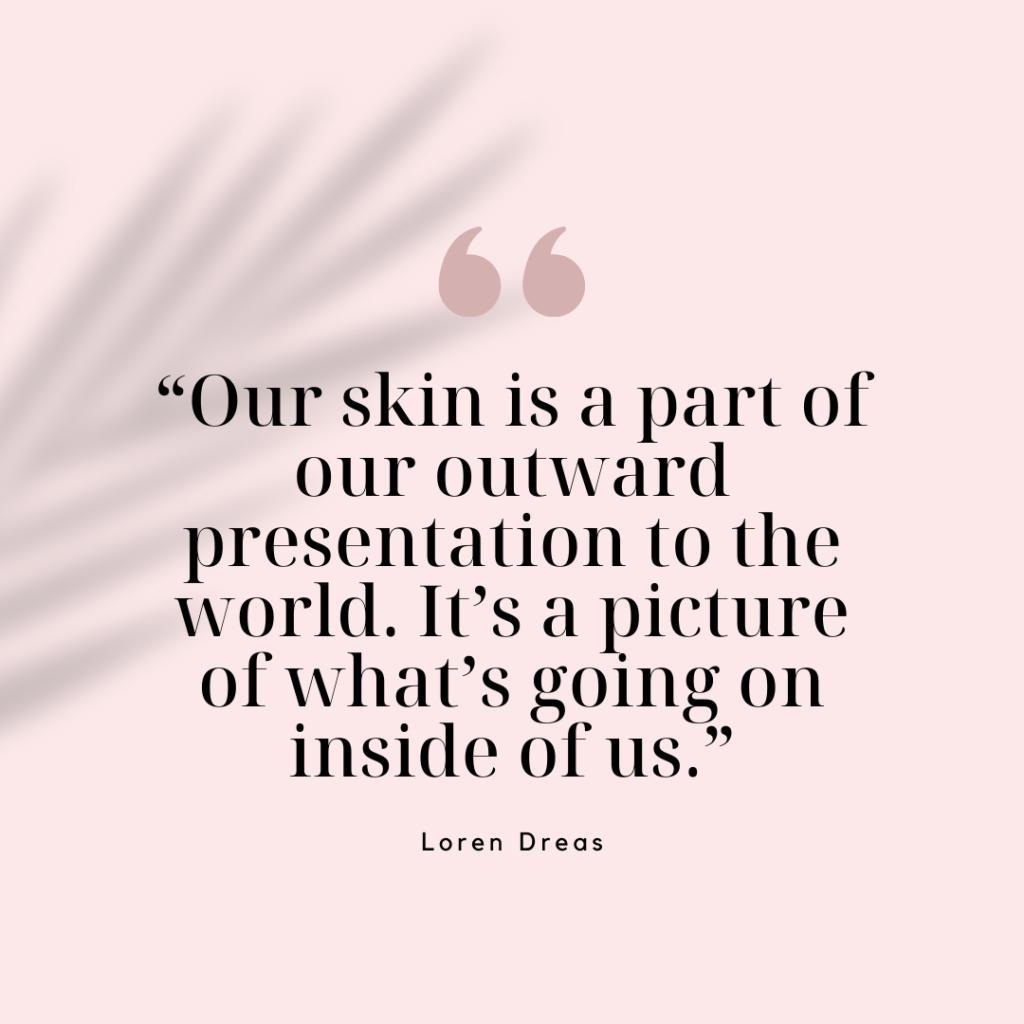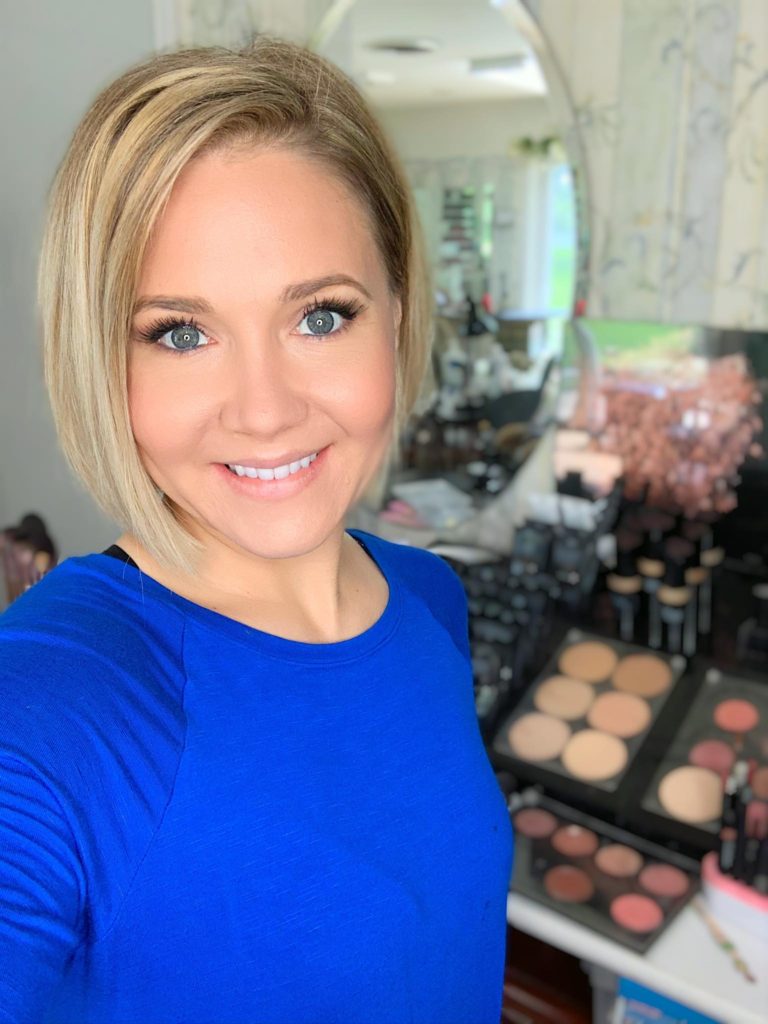I admit it. I had not considered a holistic approach to skin health. I admit that I hadn’t thought about skin concerns going deeper than the skin itself. Acne? Wrinkles? Hyperpigmentation or dryness? A topical approach was it. And sure, some products tackled it, and some didn’t. But I was wrong not to think about a holistic approach to my skin’s health (and my clients), and inside this article, I share what holistic means and how to benefit from using it.
Your Skin Is Like A Mirror
The holistic approach to skin health means thinking about it from the inside out. Even though my husband is a chiropractor and I have been aware of holistic approaches to overall health, I still had a topical mindset of the skin. It wasn’t until my daughter had a significant health issue that I realized how amazing and complex our bodies are. Everything works together. If one thing is off, it interrupts something else, and your skin is actually a great mirror of what’s going on inside your body.
As a makeup artist, one of my jobs is to assess the symptoms (acne/oily/dry/sensitive/aging) of the skin so I know how to best approach the application. Since I usually have back-to-back applications for an event like a wedding, I don’t typically get to address skincare needs. I also don’t get to dive deeper into aspects that could help clients get to the root of their skin concerns.
To help with this, I’ve created a program that approaches skin concerns more holistically.
What Does “Holistic” Mean?
A holistic health approach means looking at and treating something as a whole, and not just parts of it. When it comes to the skin, we must consider body, mind, and spirit as parts of the sum. The underlying theory is that these parts are related to and dependent on one another. Balance, and thus health, can only be achieved if all the parts are working properly. It means looking for the causes as opposed to simply just treating symptoms. It acknowledges that for our bodies, our environment and inner imbalances (physical, chemical, and emotional) can have severe consequences for our health; thus, we need to take everything into account if we want to restore that balance.
Physical Health: What You choose To Do
When it comes to supporting your physical health, a few essential practices that everyone can benefit from are:
- Sleep for 8 hours each night. Proper sleep will allow your body to truly rest and repair from the day.
- Move your body for 30 minutes each day. While every person’s exercise routine will be different, everyone can benefit from at least 30 minutes of movement each day.
- Practice good hygiene (bathe/shower/brush your teeth/wash your hands)

Chemical Health: What You Put In And On Your Body
Supporting your chemical health looks like this:
- Eating a nutrient-dense diet that is high in living, whole foods, and organic/pastured animal products.
- Limiting processed foods and hydrogenated oils, which are highly inflammatory and can increase chronic disease risk.
- Do not smoke and avoid excessive alcohol consumption.
- Paying attention to the ingredients in your products that are regularly coming in contact with your skin.
Emotional Health: What You Think And Believe
While often overlooked, our emotional health is just as important, if not more important, than our physical health. Our emotional health does affect our physical health if not prioritized.
Ways you can support your emotional health:
- Seek out therapy/tools when needed. Therapy is an essential part of supporting our emotional health, and one should use it whenever necessary.
- Practice mindfulness and stress reduction habits that can help you better manage life’s daily stressors.
- Keep a journal to record your thoughts and feelings. Use your journal to record what you are grateful for, as it can help bring positivity into times of stress.
Holistic Approach To Skin Health Is Personal
Our skin is a part of our outward presentation to the world. It’s also a picture of what’s going on inside of us. The primary goal of holistic practices, including skin health, is gaining proper balance in life. For these reasons, the health and treatment of your skin are extremely personal and depend on numerous internal and external aspects.





